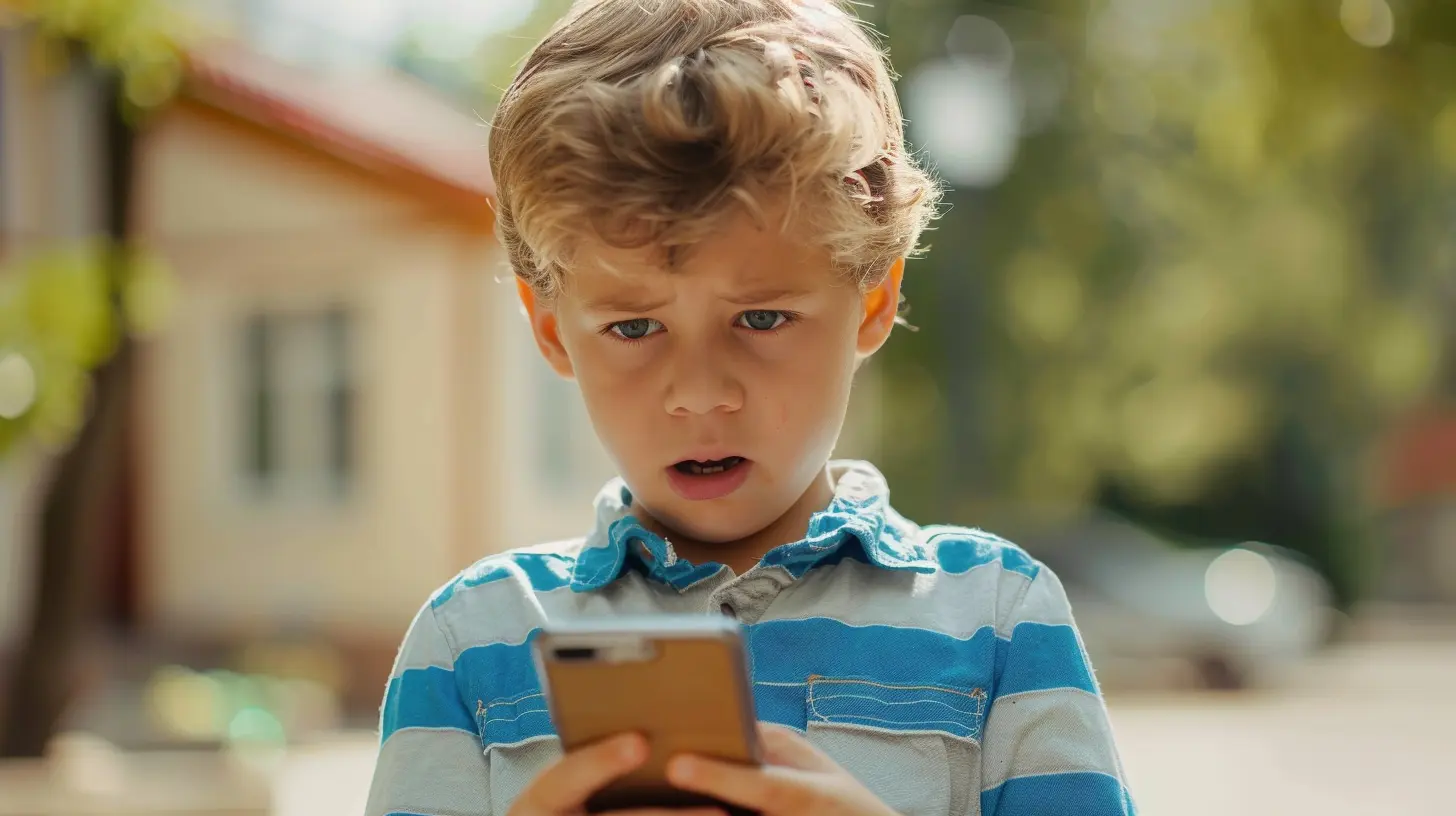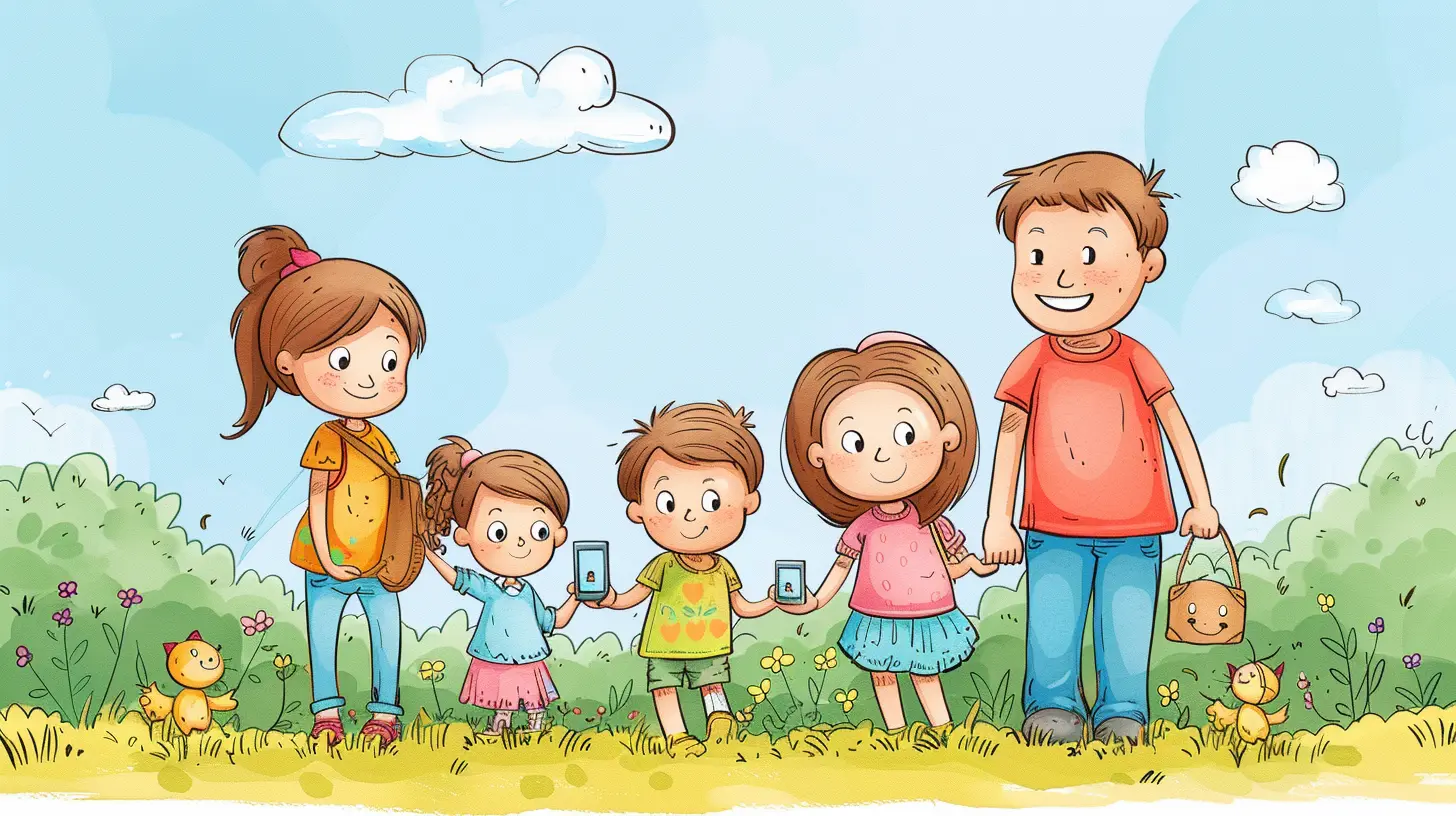Social Media Safety Rules Every Parent Should Discuss
10 June 2025
Let’s talk about social media – that endless scroll of selfies, memes, friend requests, and TikTok dances. For our kids, it’s basically the virtual playground of the 21st century. But just like you wouldn’t drop your child off at a park full of strangers without laying down some ground rules, you shouldn’t let them loose on the internet without a serious heart-to-heart.
As parents, we want our kids to be safe, smart, and confident – both online and off. So today, we’re breaking down the social media safety rules every parent should discuss. These aren’t just tips; they’re essential conversations that help our kids navigate a digital world that’s not always friendly.
Why Social Media Safety Conversations Are a Must
Okay, let’s get real. Social media isn’t going anywhere. Whether it’s Instagram, Snapchat, YouTube, or whatever the next big thing will be, our kids are plugged in. And while it can be awesome for staying connected and creative expression, it also opens the door to cyberbullying, predators, identity theft, and mental health issues.Think of social media like a car. It can take you cool places, but only if you know how to drive it safely. Without a seatbelt? That’s just asking for trouble.
So, let’s buckle up, parents – here are the safety rules you need to talk about with your children today.
1. Keep Personal Info… Personal
This one seems obvious, but it’s worth repeating until your child rolls their eyes (that’s how you know it’s sinking in).Rule #1: Never share your full name, address, phone number, school name, or daily schedule.
Why? Because it’s like handing over a map of your life to total strangers. Even seemingly innocent posts like school uniforms, locker numbers, or tagged locations give away more than you think.
Encourage your child to think twice before posting anything. The rule of thumb? If you wouldn’t shout it out in a crowded mall, don’t post it online.
2. Privacy Settings Are Your Best Friend
Social media platforms almost always start with public profiles by default. Meaning? Anyone can see what your child posts, comments on, or likes.Sit down and go through the privacy settings of each app together. Make those profiles private, limit who can message them, and turn off location sharing.
It’s like setting up locks on your front door. Sure, most visitors are friendly—but do you really want every stranger on the internet walking into your digital living room?
3. Think Before You Post
Have you ever said something in the heat of the moment and instantly regretted it? Now imagine that moment was captured, shared, and screenshotted forever.Explain to your child the importance of thinking before posting, commenting, or even liking something. Emphasize digital footprints – the idea that once something is on the internet, it’s incredibly hard to erase it.
Ask them: “Would you be okay if your future college, boss, or grandma saw this post?” If the answer is “No,” it probably shouldn’t go online.
4. Not Everyone Is Who They Say They Are
This one is especially important for younger kids: just because someone has a cute profile pic and says they’re 14 doesn’t mean it’s true.There are predators out there, and they can be frighteningly good at pretending to be kids too. Teach your child to never accept friend requests or messages from people they don’t know in real life.
Remind them that it's okay to be rude online when protecting themselves. Blocking isn’t mean – it’s smart.
5. Confidence Over Comparison
Social media is one giant highlight reel. Everyone is posting their best moments, best selfies, and most exciting adventures. And when kids scroll through that day after day, it’s easy for self-esteem to take a hit.Talk to your child about the difference between real life and online life. Let them know that what they see online isn’t the full story. Behind every perfect selfie is a dozen deleted ones, a bunch of filters, and maybe even some Photoshop.
Encourage them to use social media as a way to express themselves, not compare themselves.
6. Spot the Red Flags of Cyberbullying
Cyberbullying is ugly – and unfortunately, common. It can be sneaky or outright cruel, and it affects kids emotionally far more than they might admit.Make sure your child knows the warning signs:
- Sudden changes in mood after going online
- Withdrawing from friends and activities
- Hesitation to use their phone or computer
- Secretive behavior
Let them know you’re a safe place. If they’re being bullied or see someone else being bullied, they should report it, block the user, and talk to you.
7. Limit Screen Time For Sanity’s Sake
We’ve all been there – the “just five more minutes” that turns into two hours. Social media is designed to be addictive.And too much of it can mess with sleep, focus, and mental health. Work with your kids to set healthy boundaries:
- No phones at dinner
- Tech-free time before bed
- Scheduled screen breaks during the day
Even better? Model good behavior yourself. (We know, we know – easier said than done. But they’re watching.)
8. Don’t Fall for Scams
Even adults fall for phishing scams and fake giveaways, so you can bet kids are even more vulnerable.Teach them to be skeptical online. If a message or pop-up asks for passwords, tells them they’ve won a prize, or offers something “too good to be true,” it probably is.
And if they do click on something suspicious? Let them know they can always tell you—judgment-free.
9. Create a Safe Space for Questions
You want your child to come to you when something weird or scary happens online, right? But if they think you’ll freak out, chances are they’ll keep it secret.Make it clear that your door is always open. No judgment, no punishment—just love, support, and solutions.
Even if they make a mistake, what matters most is that they talk to you about it. Being approachable is the foundation of any long-term online safety plan.
10. Keep the Conversation Going
Social media evolves fast. What’s popular today may be gone tomorrow (remember Vine?). That’s why safety can’t be a one-and-done talk.Make it an ongoing conversation. Ask them what new apps their friends are using. Learn about those platforms together. Stay curious. Stay involved.
Because when kids know their parents care—not just about the rules, but about their online world—they’re far more likely to listen.
Bonus: Teach Them To Be Kind Online
The internet doesn’t need more trolls. It needs more kindness, empathy, and people who lift others up instead of tearing them down.Talk to your child about using social media for good:
- Compliment a friend’s art post
- Share a positive story
- Speak out against online hate (safely)
Remind them that they have the power to create a better digital world—one post at a time.
A Quick Safety Chat Checklist (For Busy Parents)
Pressed for time? Here’s a checklist of topics to cover during your first social media safety talk:✅ Keep personal info private
✅ Set strong privacy settings
✅ Pause before you post
✅ Don’t trust online strangers
✅ Never meet up with someone from the internet
✅ Talk to a parent about anything weird
✅ Avoid toxic content and fake news
✅ Don’t forward or share gossip
✅ Report and block bullies
✅ Be proud of all your posts
Final Thoughts: Your Voice Matters Most
Here’s the thing—no amount of parental controls, privacy settings, or fancy monitoring tools can replace the power of communication. Your voice? It's the most valuable safety tool your child has.So talk. Listen. Repeat.
Remember, you’re not just teaching your child how to use social media—you’re teaching them how to be responsible, empowered digital citizens. And that’s a lesson that’ll stick with them for life.
all images in this post were generated using AI tools
Category:
Child SafetyAuthor:

Liam Huffman
Discussion
rate this article
3 comments
Ardyn Spencer
Open dialogue fosters trust and safety online.
June 14, 2025 at 3:19 AM

Liam Huffman
Absolutely! Open dialogue helps children feel comfortable sharing their online experiences, which is crucial for ensuring their safety.
Elijah Coleman
Empower your kids with knowledge! Open conversations about social media safety to build confidence and protect them.
June 13, 2025 at 2:39 AM

Liam Huffman
Absolutely! Open discussions empower children to navigate social media safely and confidently. Sharing knowledge is key to their protection.
Ariadne McAdoo
Thank you for this insightful article! It’s so important for us as parents to guide our kids through the complexities of social media. I appreciate the practical tips shared here.
June 12, 2025 at 4:50 PM

Liam Huffman
Thank you for your feedback! I'm glad you found the tips helpful for navigating social media with your kids.



